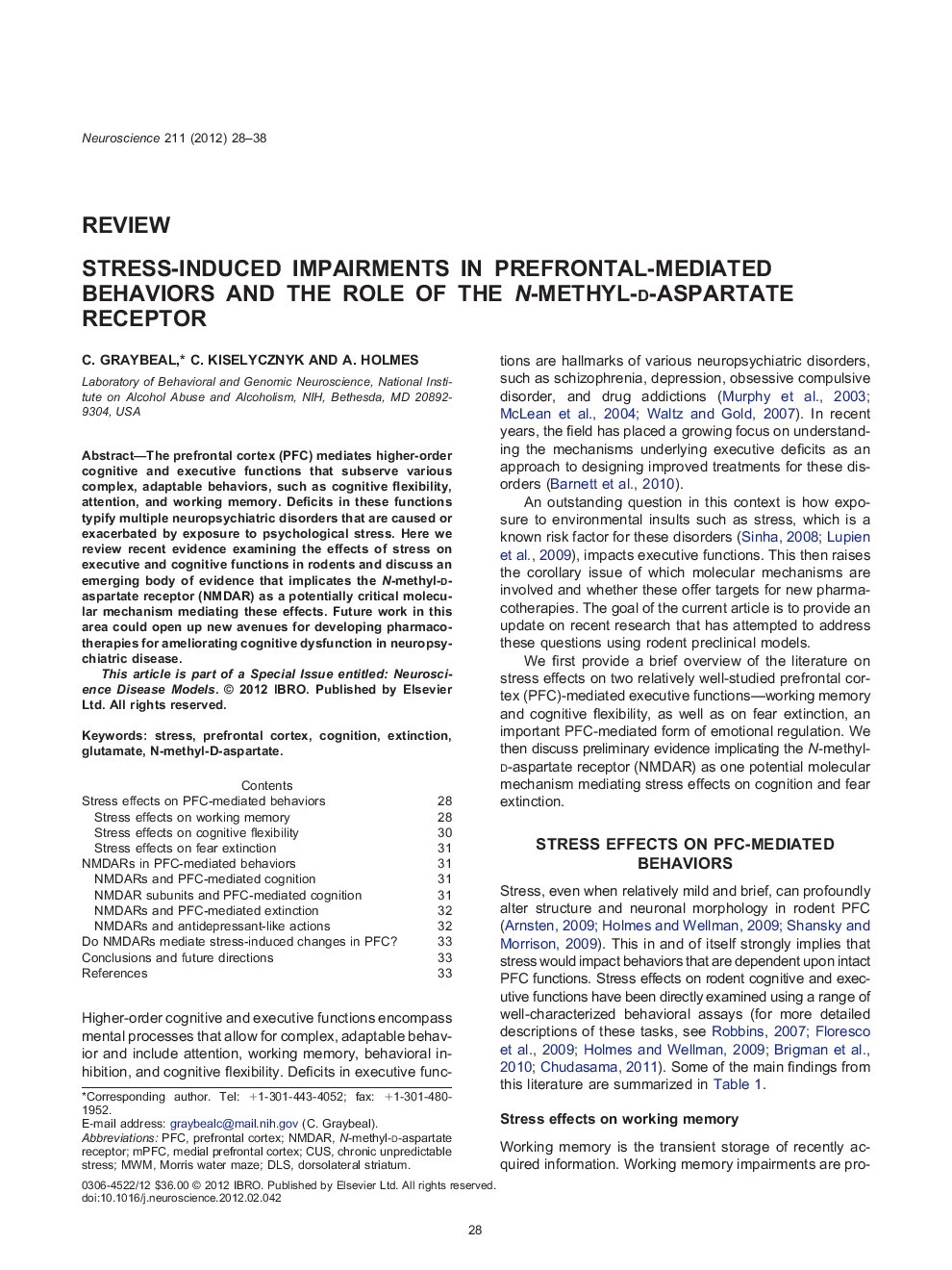| Article ID | Journal | Published Year | Pages | File Type |
|---|---|---|---|---|
| 4338414 | Neuroscience | 2012 | 11 Pages |
The prefrontal cortex (PFC) mediates higher-order cognitive and executive functions that subserve various complex, adaptable behaviors, such as cognitive flexibility, attention, and working memory. Deficits in these functions typify multiple neuropsychiatric disorders that are caused or exacerbated by exposure to psychological stress. Here we review recent evidence examining the effects of stress on executive and cognitive functions in rodents and discuss an emerging body of evidence that implicates the N-methyl-d-aspartate receptor (NMDAR) as a potentially critical molecular mechanism mediating these effects. Future work in this area could open up new avenues for developing pharmacotherapies for ameliorating cognitive dysfunction in neuropsychiatric disease.This article is part of a Special Issue entitled: Neuroscience Disease Models.
▶Executive dysfunctions are hallmarks of many stress-related neuropsychiatric disorders. ▶Rodent studies demonstrate stress-induced impairments in prefrontal-mediated cognitive functions. ▶NMDARs are key mediators of cognition and stress responses. ▶Preclinical studies implicate NMDARs in stress-induced prefrontal cognitive deficits. ▶Targeting NMDAR functions may offer novel therapeutics to alleviate stress-related cognitive deficits.
